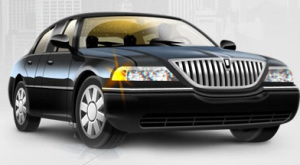Just yesterday, the California Public Utilities Commission announced that it had struck an interim agreement with Lyft, wiping away any fines levied against the ride-sharing service and allowing it to continue operating while it evaluates potential new regulation. And now today, Uber has also reached an agreement with the California regulator, which will suspend an existing cease-and-desist order and eliminate the $20,000 fine that it had tagged the startup with.
The news comes as the CPUC reevaluates the way it classifies new transportation services that rely on mobile applications to electronically hail cars and to gauge the fares charged riders. Late last year, its relationship with a new batch of e-hail services became contentious when it issued cease-and-desist letters, and later fined a group of companies for “operating unlicensed charter party services” (i.e. limo services).
But the regulator has recently had a change of heart, and has begun a process to evaluate ride-sharing and e-hail apps. In December it announced an order of proposed rulemaking, under which it sought public comment and agreed to take a look at the safety of this new class of services. If the rulemaking goes forward, the regulator could legitimize these services, wiping away fears that they’ll be shut down — at least in California.
While Uber would probably argue that it doesn’t fit under the same terms as ride-sharing services like Lyft or SideCar, because it partners with limo and taxi companies who employ licensed drivers, it too was grouped with the others. Because it uses mobile apps for e-hail and determining the cost of the ride, it too is having its technology evaluated. In the meantime, while the rulemaking process is underway, the CPUC is clearing some of the services, including Lyft yesterday and Uber today.
For Uber, the settlement marks another regulatory victory, as the company seeks to get the bodies governing transportation companies up to speed with what’s capable, thanks to new mobile technologies. Those battles against regulators and municipal authorities have spread through a number of markets it has launched in, including San Francisco, Boston, New York City, and Washington, D.C.
As part of its official statement, Uber said:
“This settlement agreement is part of a steady drumbeat of progress in which pro-consumer, pro-innovation jurisdictions like Washington D.C., New York City, and Massachusetts are recognizing that everyone wins when new technology that fosters efficiency, affordability, and choice in transportation is allowed to flourish.”
The good news for Uber — and for other new e-hail and ride-sharing apps — is that those regulators tend to come around after a bit of wrangling. While it’s faced initial setbacks in some markets, it’s won victories in most of the cities where it’s faced scrutiny. For consumers who now have more choice as to how to get around, as well as more reliable service, that’s a good thing — no matter which city they live in.
